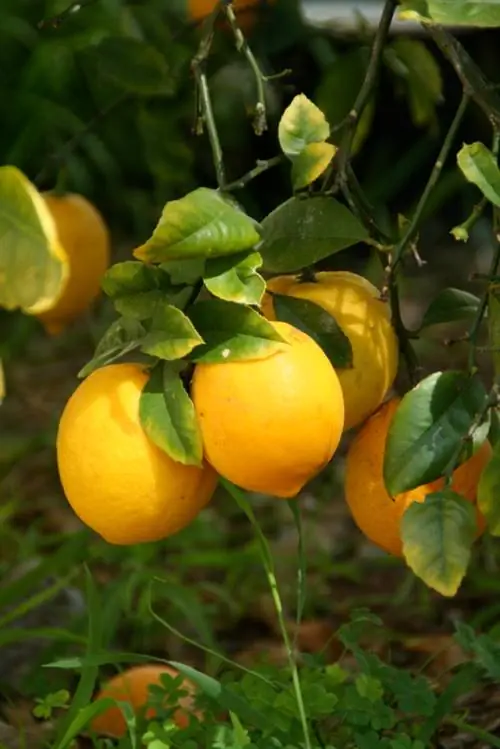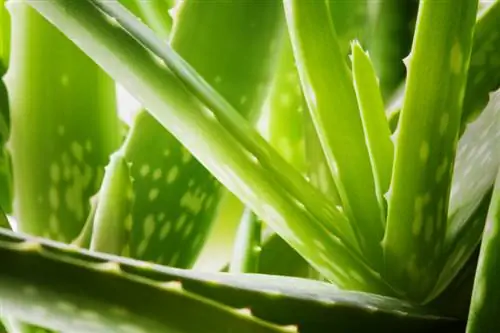- Author admin leonars@hobbygardeners.com.
- Public 2023-12-16 16:46.
- Last modified 2025-01-23 11:20.
Blueberries have become very fashionable as a garden fruit in recent years because they produce a high yield of delicious fruit in a small space. However, they are also affected by certain diseases.

What diseases can affect blueberries and how can they be prevented?
Blueberries can suffer from stunted growth, frostbite infestation or rot under unfavorable location and care conditions. To prevent this, acidic, loose soil, adequate irrigation, regulation of waterlogging and good sunlight and ventilation are required.
If there are problems, first check the location and care
Due to a lack of information, serious errors often occur when planting blueberries in the garden, which then have a massive impact on the he alth and yield of the plants. Most garden soils in this country are rather clayey and rich in lime. The cultivated blueberries, which come from North America and are bred, also require a rather acidic and low-lime soil with a loose consistency and a pH value between 4.0 and 5.0 in order to thrive he althily. An unsuitable substrate must therefore be used at the planned location for growing blueberries initially be replaced extensively with special azalea and rhododendron soil. If this does not happen, the blueberry plants may become stunted and possibly even die completely. If this is not possible, culture in a pot is sometimes the better choice.
The frost moth is the only real threat to blueberries
Basically, blueberries in the garden are among the fruit trees least susceptible to disease. Nevertheless, buds can dry out and fall off, which can be visually recognized by white webs. This is the work of the frost moth, which can cause greater damage in dense stands if it spreads unhindered. A gentle pruning and sufficient planting distance between the rows are suitable for preventing frostbite. Affected areas should be cut out quickly and checked again regularly.
Rotting due to waterlogging
The cultivated blueberries bred for cultivation in the garden thrive best in full sun locations. The plants should be watered sufficiently, especially just before the harvest season in July and August, but waterlogging must be avoided at all costs. If the plants are too dense and shady, the combination with waterlogging can lead to a rot problem. Help as countermeasures:
- loosening the soil
- controlled watering
- pruning neighboring trees for greater sunlight and better wind ventilation
Tips & Tricks
The yield of blueberries in the garden can also be reduced by fruit thieves in the form of birds. However, this can be de alt with relatively easily and inexpensively with bird nets stretched over the bushes.






